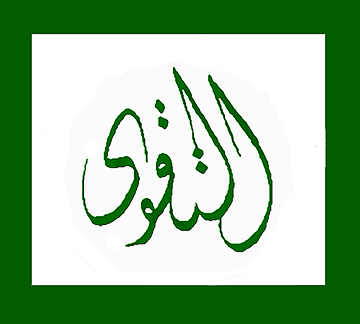Muslims to be identified by ‘God-conscious righteousness’
COFFEE WITH WARREN, with Warren Harbeck
Cochrane Eagle, October 24, 2013

At-Taqwa, Arabic for “God-conscious servant-righteousness,” is the defining “garment,” or public identifier, of a Muslim, according to Dr. David Liepert.
Not clothing or accessories, but a special kind of righteousness is to be the distinguishing feature of a Muslim, according to one of our Springbank coffee companions.
This is my third in a series of columns on religious symbols and identifiers. Inspired by Quebec’s proposed legislation banning the wearing of obvious religious symbols while on duty in the public service, I’ve focused on non-material identifiers of one’s faith among the four Abrahamic religions – identifiers that no law can ban.
In my Oct. 3 column I suggested love is such an identifier for Christianity. In my Oct. 10 column Rabbi Shaul Osadchey suggested justice is such an identifier for Judaism.
But what about Islam?
For Dr. David Liepert, anesthesiologist, adult convert to Islam and author of Muslim, Christian and Jew, there is a religious identifier that is more important than hijabs and burkas – attire he sees as more cultural than religious, in any case.
That ultimate religious identifier for Muslims, David says, is “God-conscious servant-righteousness.” Here’s his response to our series:
To sit within your framework of the garment of Christianity being love, and the garment of Judaism being justice, I’d suggest that the garment of Islam is righteousness, according to the Qur’an:
“O children of Adam, We have bestowed upon you clothing to conceal your private parts and as adornment. But the clothing of righteousness – that is best. That is from the signs of Allah that perhaps they will remember.” (Qur'an 7:26)
But then I'd go on to explain what "righteousness" is. The Arabic word at-Taqwa, translated here as "righteousness," is often translated elsewhere as "God-consciousness," because it's more about being aware of our relationship to God and the rest of creation in the context of our status as God's created servants.
Righteousness, as defined by the Qur’an, is not about empty ritual, but is instead a combination of belief (which empowers us to act), generosity (because all we have has been given to us by God-Most-High), justice, honesty and patience. (Qur'an 2:177)
That's why in Islam righteousness means something very special: Righteousness = God-conscious servant-righteousness.
Translated (by others, but modified to the best of my ability to ensure fidelity to the meaning), the verse says this:
“Righteousness is not that you turn your faces toward the east or the west, but (true) righteousness is (in) one who believes in Allah , the Last Day, the angels, the Book, and the prophets and gives wealth, in spite of love for it, to relatives, orphans, the needy, the traveler, those who ask (for help), and for freeing slaves; (and who) establishes prayer and gives Zakat (i.e., giving what we have to others in order to purify it to our own use) in (those who) fulfill their promise when they promise; and in (those who) are patient in poverty and hardship and during battle. Those are the ones who have been true, and it is those who are the righteous.”
My own bottom line is that we all need everybody. God's Perfect Love includes all those “best” things we find within ourselves and others, but until we are reunited with Him in Heaven, we only have each other: You can see how perfect Christian compassion, perfect Jewish benevolent justice, and perfect Islamic righteousness all end up bringing us diverse believers together around being and doing the same things.
On the other hand, the absence of those things within each of us – Christians acting without compassion, Jews acting without benevolent justice, Muslims acting without God-conscious servant-righteousness – has given us the Hell we are making of our world today.
Thank you, David. Next week, a Baha’i perspective on personal identifiers of one’s faith.
© 2013 Warren Harbeck
JoinMe@coffeewithwarren.com